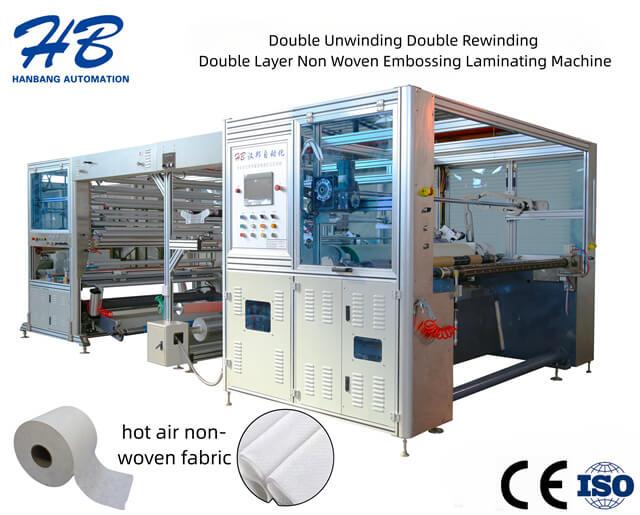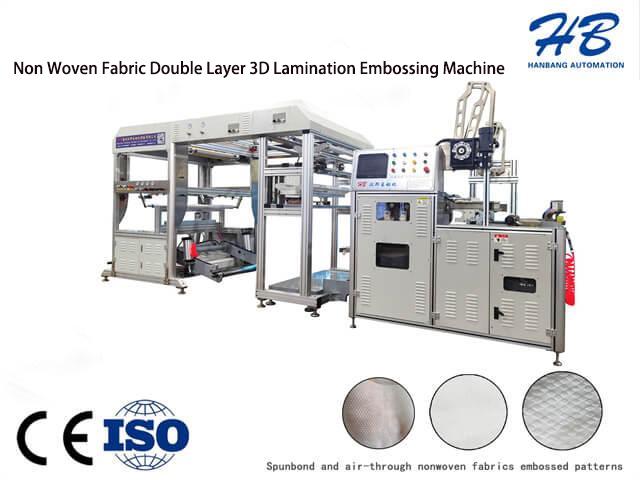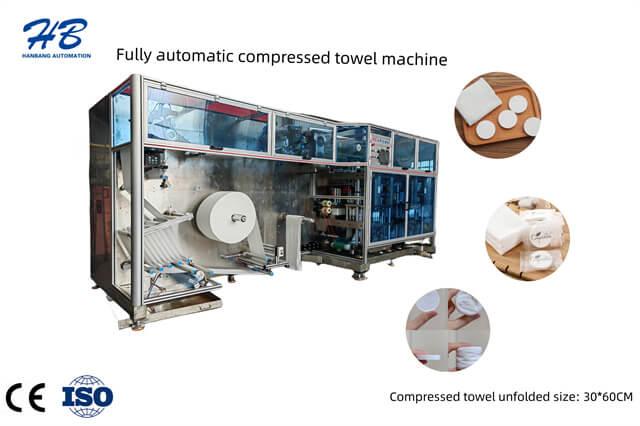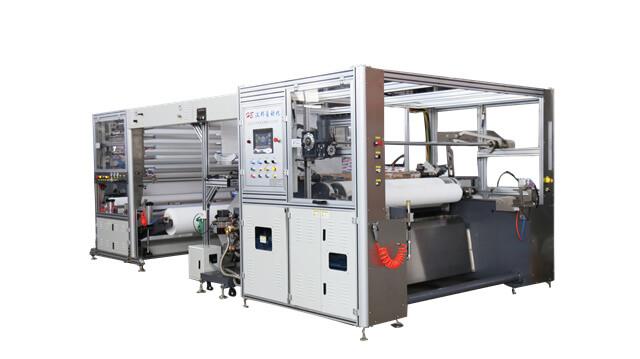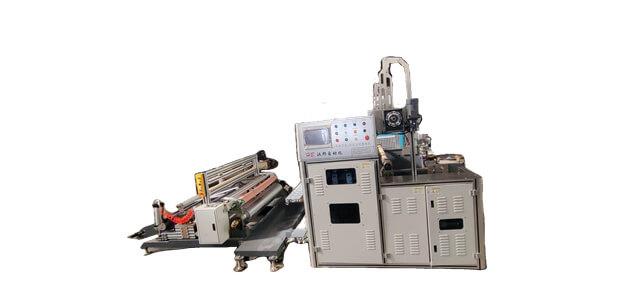Author:HB Nonwoven MachineryFROM:Compressed Towel Machine Manufacturer TIME:2023-12-25
Technical Features of Non Woven Fabric Embossing Machines
Non woven fabrics are widely used in the production of various products such as diapers and sanitary napkins. Embossing is an important process that enhances the functionality and aesthetics of these products. Non woven fabric embossing machines play a vital role in achieving the desired embossing patterns and textures. In this article, we will explore the technical features of these machines and their significance in the hygiene industry.
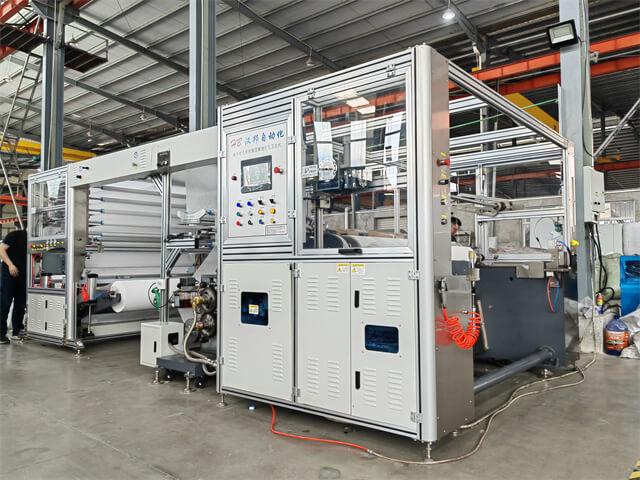
One of the key features of non woven fabric embossing machines is their ability to deliver high precision embossing. These machines are equipped with advanced control systems that ensure accurate pattern alignment and consistent embossing depth. The use of precision rollers and pressure control mechanisms allows for the creation of intricate and detailed embossing patterns on the fabric.
Non woven fabric embossing machines offer flexibility in adjusting various parameters to achieve different embossing effects. Operators can easily control the embossing temperature, pressure, and speed to suit specific product requirements. This versatility enables manufacturers to produce a wide range of embossed p
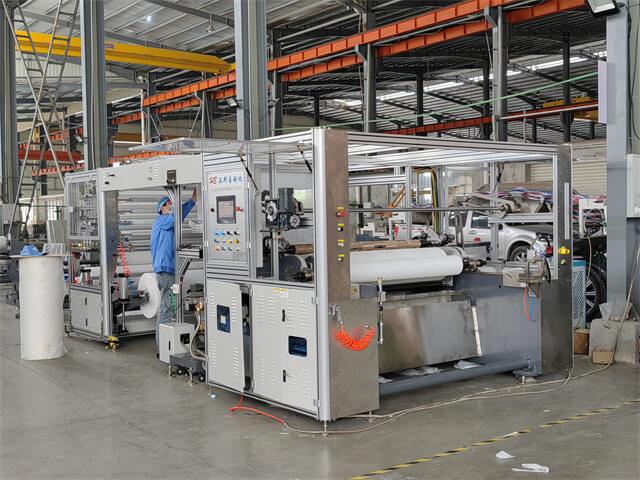
With the advancement of technology, non woven fabric embossing machines have significantly improved their production speed. Modern machines are capable of achieving high-speed embossing without compromising on quality. This increased efficiency allows manufacturers to meet the growing demands of the market while maintaining product integrity.
Energy efficiency is an important consideration in the manufacturing industry. Non woven fabric embossing machines are designed to optimize energy consumption while deliver
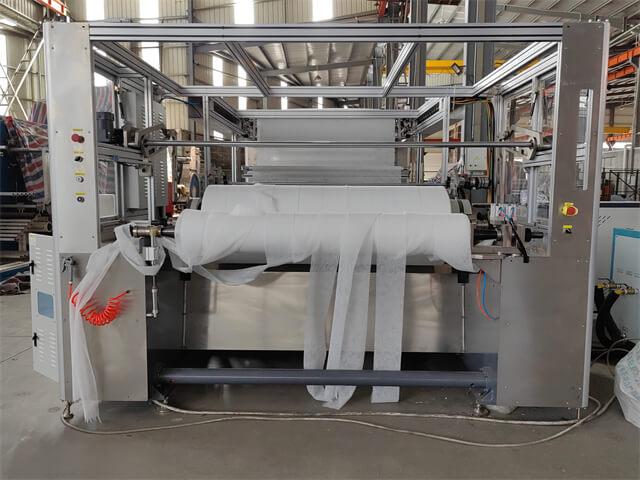
Non woven fabric embossing machines are user-friendly and require minimal training for operation. The machines are equipped with intuitive control panels that allow operators to adjust settings and monitor the production process with ease. Additionally, these machines are designed to be durable and require minimal maintenance, ensuring uninterrupted production and reduced downtime.
Safety is a paramount concern in industrial settings. Non woven fabric embossing machines are equipped with various safety features to protect operators and prevent accidents. Emergency stop buttons, safety sensors, and protective covers are some of the safety measures incorporated into these machines to ensure a secure working environment.
Manufacturers often have specific requirements for their products, including unique embossing patterns or branding elements. Non woven fabric embossing machines offer customization options to cater to these specific needs. The machines can be tailored to accommodate different fabric widths, embossing designs, and branding requirements, providing manufacturers with the flexibility to create distinctive and personalized products.
Integration with other production processes is crucial for seamless manufacturing operations. Non woven fabric embossing machines are designed to integrate with upstream and downstream processes, such as printing, cutting, and packaging. This integration streamlines the production flow, reduces manual handling, and improves overall efficiency.
Non woven fabric embossing machines play a vital role in the hygiene industry. Their high precision embossing, adjustable parameters, efficient production speed, energy efficiency, easy operation and maintenance, safety features, customization options, and integration capabilities make them indispensable for manufacturers in producing high-quality diapers, sanitary napkins, and other similar products. By investing in advanced non woven fabric embossing machines, manufacturers can enhance their productivity, meet consumer demands, and stay competitive in the market.
